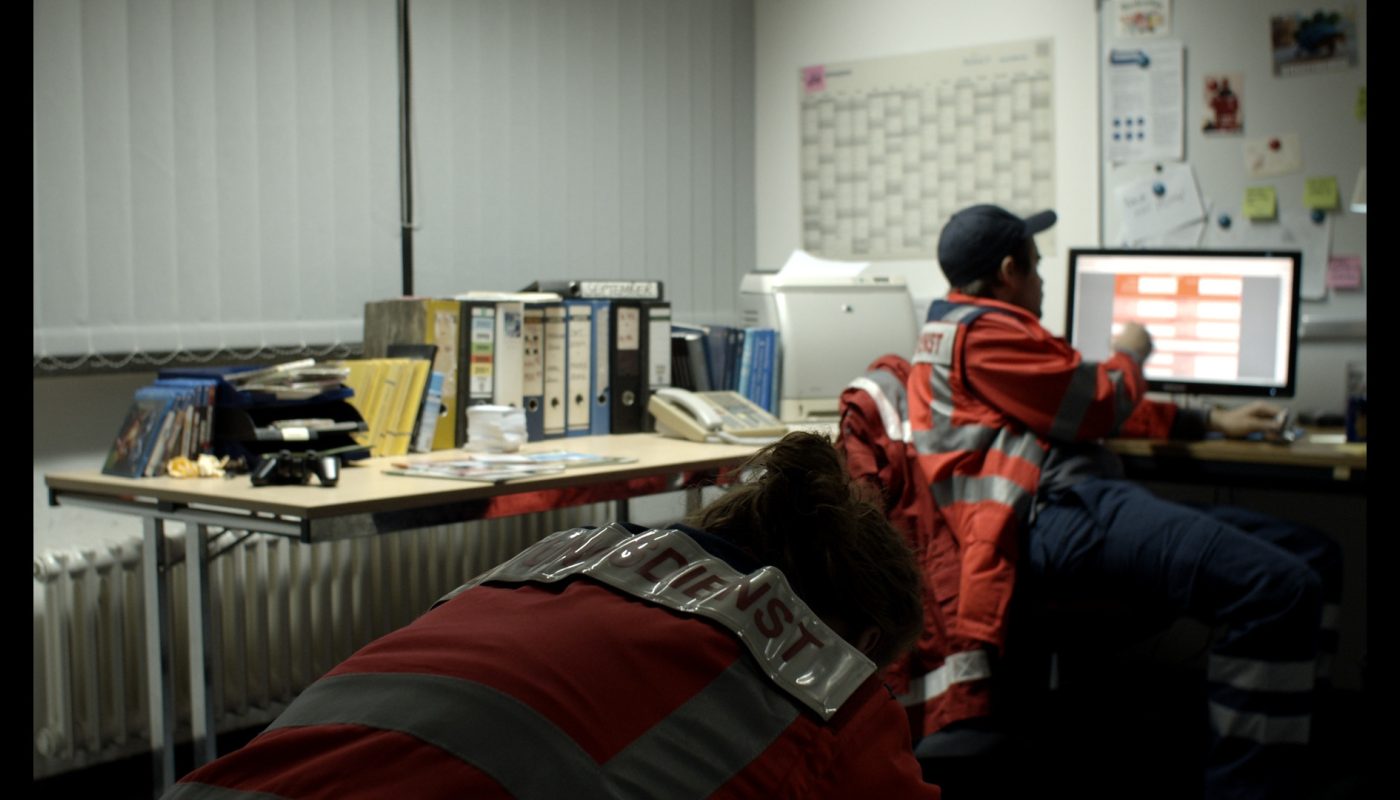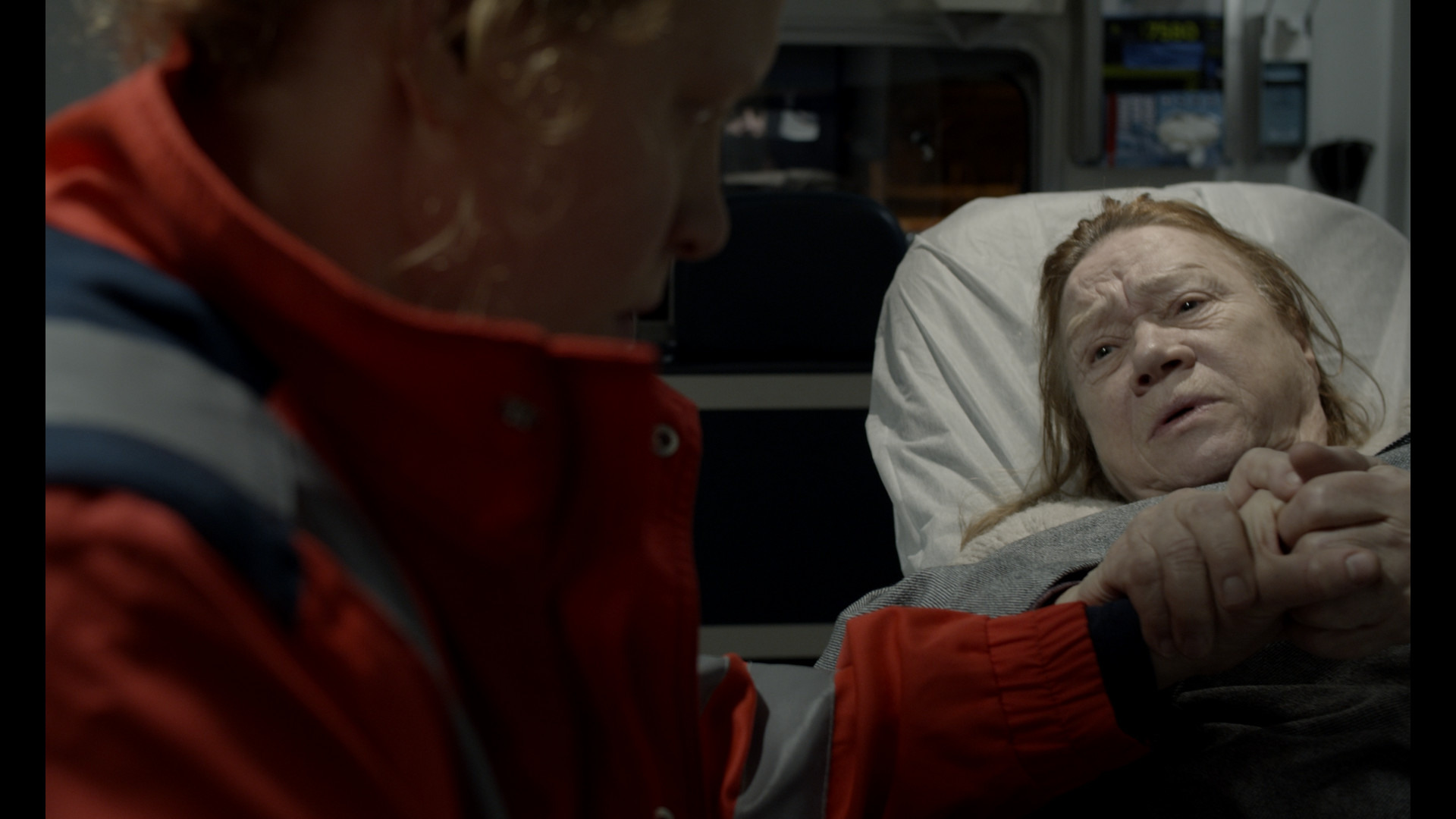

Case Study: TILT
Björn Schürmann talks of the making of TILT
Geplaatst op 13 februari 2022TILT is one of the selected short films for Euregion Film Festival 2022. Today we dive into the making of this short with director Björn Schürmann.
The idea
"The idea to make a shortfilm about a female paramedic came to me while I was looking for a story for a feature-length film. My brother was a paramedic for 25 years and never talked much about it. At the same time, it stuck with me that he did it not only to help people, but also because he liked the adrenaline rushes in the missions. That was the incentive for me to pursue my curiosity and to go on 24-hour shifts in the ambulance service to do research."
Working on the Edge
"During the research, I found a unique world in the midst of our society that fascinates me deeply. Life-savers are quiet heroes who often work at the interface between life and death with composure, humour and hope. In their humanity, however, they rarely become visible to us. At the same time, I discovered a world in which women have a much harder time than their male counterparts. I knew then that I had found a story for a feature film that had become a great concern of mine: A young woman who works in emergency rescue but is discriminated at the same time. Her goal to become a heroine is torpedoed by this and she fights back with human anger that contrasts with her job as a paramedic. She has two opposing battles to fight and must find a way to deal with them."
Tight Budget and COVID hindrances
"Due to a Corona infection (it was the time at the end of January 2021 when there were hardly any vaccinations) our camera team for the shoot dropped out and the whole project was about to be cancelled. We had to re-cast the DOP within 3 days. Due to the precise preparation, this worked better than expected, we were able to keep to the shooting schedule and I am very happy with the result. Overall, it is an experience that has shown me how important it is that all creative forces are deeply involved in the making process so that the project survives difficult situations."
"The budget for the entire film was €6000 via crowdfunding, which meant that no one could be paid and everyone worked on a voluntary basis. It was all the more important that the team consisted of people who were able to express themselves creatively and derive a personal benefit from the work. There were students from film schools and graduates like me who wanted to test new collaborations."
"I edited the film myself due to the tight budget, which is always a difficult situation because I need distance myself, have to do test screenings to get the necessary distance back. We were very lucky with the further steps, because the great sound designer Jaime Guijarro-Bustamante joined the project because of the Corona lull and took over the sound editing in his own studio with a colleague, the foley master David Arrilucea. The music was composed by the two studio musicians."
"Florian Mönks and Philip Hochstrate, with whom I almost always work. It always need some time to find the right music. But it's a liberating process, where we try out different extreme directions until the energy of the film is found. In the case of TILT, the final decision was to compose just one song, but it doesn't function as a classical film score; it runs as original music in the film, but picks up on the mood of the film. The whole sound level was never meant to be too seductive and manipulative, but to follow the line of the script as a subtle narrative element."
"The colour grading was done by our DOP Paul Näther, who had access to a studio for free. Again, subtle editing was needed to find the mood of the film without becoming too extreme, because for me the acting has to be the focus until the end. All the other elements work to, help and tell the story along. But without touching acting, no film can be helped."

Watch this short at Euregion Film Festival
March 5, Royal Theater Heerlen. March 1-6, online.
Key point: Rehearsals
"I rehearse a lot and always on the basis of scenes that are well developed in the script. I am helped by elaborate rehearsal plans, which allow me to respond a lot with questions that make me curious about the characters. I spend as much time as it takes on rehearsals to connect the actors with the characters and the story. Through rehearsals we adjust the script and dialogue and bring the story to life. The rehearsals are just as important to me as the filming, and during filming, rehearsals are usually only possible to a very limited extent and under great time pressure."
"In this specific case, it was important to rehearse the scenes in entire arcs, because we were working on a camera concept in parallel, which should correspond to the inner perception of the work in the rescue missions. So we developed several plan sequences and planned them very precisely and rehearsed them with the actors on the basis of the camera planning. The cinematographer Miriam Kolesnyk and I thought through each scene in detail beforehand. So we had pictures, lighting moods and an exact shot list at our disposal, which completely saved the film in the end."
"That's why my tip is to do the acting rehearsals intensively, to prepare well and to understand every casting situation as a purposeful rehearsal. Actors want to work, then they can shine, in my opinion. So don't be afraid of rehearsals please!"
"The marketing of the film has now begun. Besides Euregion Film Festival, the Larissa Film Festival in Greece has chosen to present the film. Many others are hopefully still to come. In parallel, the short film serves as a teaser and work sample and helps us pitch the feature-length film."

(c) All visual material is used with the filmmaker's permission.